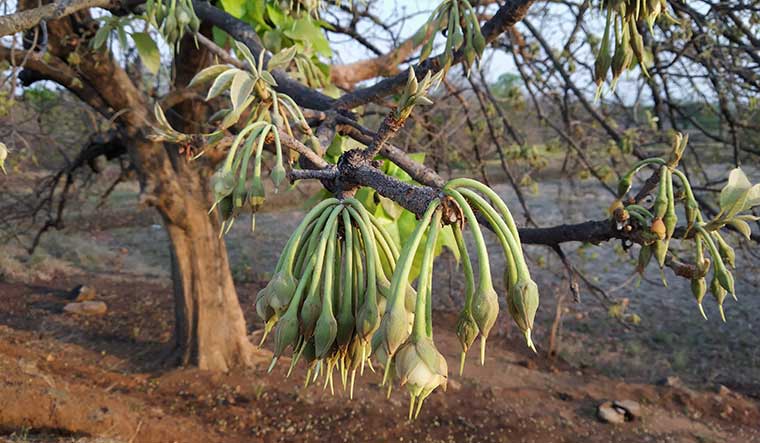Desmond Nazareth returned to India in 2000. After having spent 17 years in the US, he may have anticipated some of the disadvantages of relocating to a less developed country. But, there were some things he was not ready to forgo, such as margarita—a cocktail made with tequila and citrus juice. Soon, the alumnus of IIT Madras and Temple University, Philadelphia, realised that India lacked affordable ingredient options for making margaritas. However, instead of resigning himself to the reality of the Indian market, Nazareth took matters into his own hands.
In 2007, he started Agave India (agave is the plant from which tequila is made), a craft distillery that uses Indian know-how and raw materials. “The company was started as an attempt to make Indian agave alcohol from the blue-green agave plants that I found growing on the Deccan Plateau,” said Nazareth, who is single at 62, with no kids. “Later, the vision evolved into making specialty, unique Indian alcohol at international quality.” The company now employs 35 people in its two facilities—a 44-acre agro facility and craft distillery in Andhra Pradesh, and a packaging unit in Goa.
The products—sold in select markets under the brand name DesmondJi (DJ)—include agave spirits, orange liqueur, alcoholic margarita blends and the newest offerings, mahua spirits. The US and Europe are the major export markets. Agave India’s lifetime sales is around 60,000 cases (each with nine litres of alcohol at 40 per cent alcohol by volume). It has raised about $3 million over the years from around 60 national and international investors.
Mahua is currently the brand’s focus area. The liquor, made from the flowers of the mahua tree, has had a storied past. It has been an important part of tribal life in India—used in ceremonies at birth, marriage and death. But, like many things Indian, it suffered during colonial rule. The British banned its home distillation to push their own liquor. The freedom struggle portrayed alcohol as a British symbol and, in time, prohibition made it into the directive principles of the Constitution. This nod towards temperance has been used to justify unstable liquor policies ever since.
For millions of tribals, collecting the flower is an important means of livelihood. Apart from being used to make alcohol, the flower is sold, eaten and bartered. But mahua—the ‘holy spirit’—has, so far, failed to achieve its potential. “We have arrived at the intersection of craft and heritage alcohol in India,” said Nazareth. “We are looking at the 2020s as the decade by the end of which mahua will be universally accepted as India’s national heritage spirit.” As per the company website, mahua (750ml) costs Rs975 in Goa and Rs2,000 in Karnataka.
Nazareth calls the emergence of mahua a ‘black swan’ event internationally. “There is no other alcohol in the world that is fermented and distilled from a naturally sweet flower,” he said. “It cannot be replicated because there is no similar flower available at the scale mahua is available in India—around 5 lakh tonnes per year.” In contrast, cashew spirits, like feni, can be made wherever there are cashews. “Everybody in the world”, he said, is a target consumer for mahua because of its taste—a sweet floral nose and a pleasant aftertaste. It also has one of the lowest methanol contents (which at increased levels can cause alcohol poisoning) of any pot-distilled spirit in the world—less than 100ppm compared with 1,500 to 3,000ppm for tequila.
Nazareth estimated that the informal and distributed tribal market was producing over 500 million litres of mahua per year. He said that the company could help the tribals. “There are steps involved,” he said. “We have to first create an environment for them to trade freely in mahua flowers. For that they need to be freed from an excise stand point.” People are often punished for possessing flowers beyond a small amount, he said. “Officials say it is because the flower can be turned into alcohol. I tell them that sugar cane and jaggery can be turned into alcohol, too,” he said.
While governments want the revenues from alcohol, restrictive policies often create a vicious cycle, said Nazareth—pushing alcohol underground leading to compromised quality which results in tragedies like alcohol poisoning, which in turn create fresh demand for prohibition from “vote banks”. The other big hurdle to expansion within India is the often corrupt bureaucracy, said Nazareth. “So we are focusing on exports for mahua, and when states change their policies, we will make it more available in India,” he said.
Getting a geographical indicator tag for mahua is important, but, for that, an association of manufacturers making international quality mahua is required, said Nazareth. What is made by tribals will not meet the quality guidelines, he added. He said that while he would be happy if tribal entrepreneurs produce mahua at the required quality, he does not want to disturb the deeply-seated cultural practices with regards to how tribals make and consume mahua. “We should not take anything away from tribal mahua culture, we should add to it,” said Nazareth.



